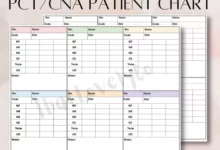How to write the best resignation letter ever

If you’re thinking about resigning from your job, there are a few things more important than writing the perfect resignation letter. It’s an essential step in the process, and if done incorrectly, it can damage your career and leave a sour taste in your mouth. In this article, we will explore the key elements of a great resignation letter and give you tips on how to write it like a pro. From creating a clear message to crafting the right tone, learn everything you need to write the perfect resignation letter and walk away feeling satisfied.
Tips for writing a resignation letter
To effectively resign from a job, first, take some time to reflect on why you are leaving. Write out your reasons in a clear and concise letter that is tailored to the employer. Include dates of employment, any accomplishments or contributions during your tenure, and anything else that may be relevant.
Draft your resignation letter on sturdy paper, so you have a record of your thoughts and feelings. Remember to keep it respectful and professional, despite the emotional nature of this decision. Send it via registered mail, so the employer has proof of your departure. Thank them for their time and consideration while also making it clear that this was not a decision taken lightly.
How to make your resignation letter personal
When you are ready to quit your job, the process can be difficult. You may feel like you need to say everything that is on your mind in a letter, but that is not always necessary. There are many ways to make your resignation letter personal and effective.
Start by writing down your reasons for resigning. This will help you organize your thoughts and avoid awkwardness during the letter-writing process. Next, think about how you want to position the letter in the eyes of the person who receives it. Is it an official resignation, or is it more of a friendly goodbye? And finally, be sure to address any concerns or questions that the other party might have.
How to write a resignation letter that will be accepted
If you are resigning from your job, there is both a right and wrong way to go about it. The wrong way can lead to tension between you and your employer, resentment on your part, and a possible battle over the terms of your departure. The right way can be smooth sailing all the way down the river of employment.
Here are five tips for writing an effective resignation letter:
1. Start with a positive statement. Set the tone for your letter before even starting to write by stating why you are resigning in a positive light. This will help make your employer feel as though they were not responsible for the decision and that you have taken full responsibility for it.
2. Keep it concise. A good rule of thumb is not more than two pages long, including any attachments or references you may include. Save bulkier material for another letter or e-mail rather than packing everything into one short document.
3. Make sure the information is correct and up-to-date. Double-check the dates on contracts, salaries, benefits information – anything that could impact your decision to leave – before submitting your resignation letter, so there are no surprises later on down the line.
4. Include contact information if possible so that your employer has a means of reaching out to you should they have any questions or concerns about your departure or need clarification on any information in your letter.
5. Send it! Follow up promptly after sending your letter.
You may also be interested in these articles:
- How to Write a Letter of Intent: A Step-By-Step Guide
- How To Close A Letter: Tips And Tricks
- Cover Letter: What Goes Into A Perfect Cover Letter
- How to Get Promoted At Work: A Complete Guide
Frequently Asked Questions
What do I say when I resign?
When you have to step down from a position, whether it’s voluntary or involuntary, the best way to go about it is with a clear, concise resignation letter. Here are four tips for writing the perfect letter:
1. Start with a strong opening statement
Your first sentence should be decisive and clearly state why you’re resigning. For example, “I am writing to tender my resignation as the manager of [company].” You don’t want your future employer wondering if there might be other reasons behind your departure.
2. State the date
Next, indicate when the resignation will take effect. For example, “I hereby submit my resignation as of [date].” This will help your future employer keep track of your exit date and ensure that necessary paperwork is filed correctly.
3. Thank your boss and colleagues
Most people appreciate acknowledgment when they leave their job, so make sure to list everyone you’ve worked with in some capacity during your time at [company]. In particular, thank those who have been supportive – this goes a long way in building good relationships with others on both sides of the desk.
4. Close with a final statement
Finally, give yourself some credit for all that you’ve accomplished during your tenure at [company] – even if it’s not everything that was hoped for or expected from you. Make sure to sum things up neatly in one sentence or paragraph at the end of your letter.
What is a Good example of a resignation Letter?
When you are ready to resign from your position, it is important to take the time to compose the perfect letter. A good example of a resignation letter can be found below.
Dear [Employer],
After careful consideration, I decided that this is the right time for me to resign from my position with your company. While I have enjoyed working here, it’s become clear that I am not a long-term fit for this role and am looking for a new opportunity.
Thank you for offering me the opportunity to work here, and I wish you all the best in your future endeavors.
Sincerely,
[Your Name]
How do you write a strong resignation letter?
When you are resigning from your job, it is important to write a letter that is respectful and motivating. To write the best resignation letter possible, start by writing a summary of your reasons for resigning. Next, explain why you feel it is the right time to leave and what new opportunities you will be taking advantage of. Finally, thank your employer for their support during your time at the company, and promise to keep in touch.
Conclusion
When writing a resignation, it is best to be careful with the information you add and leave out. With our guide above, you are sure to write the best resignation letter ever. For more tips on how to write a great letter, kindly visit Dailygam.com.






